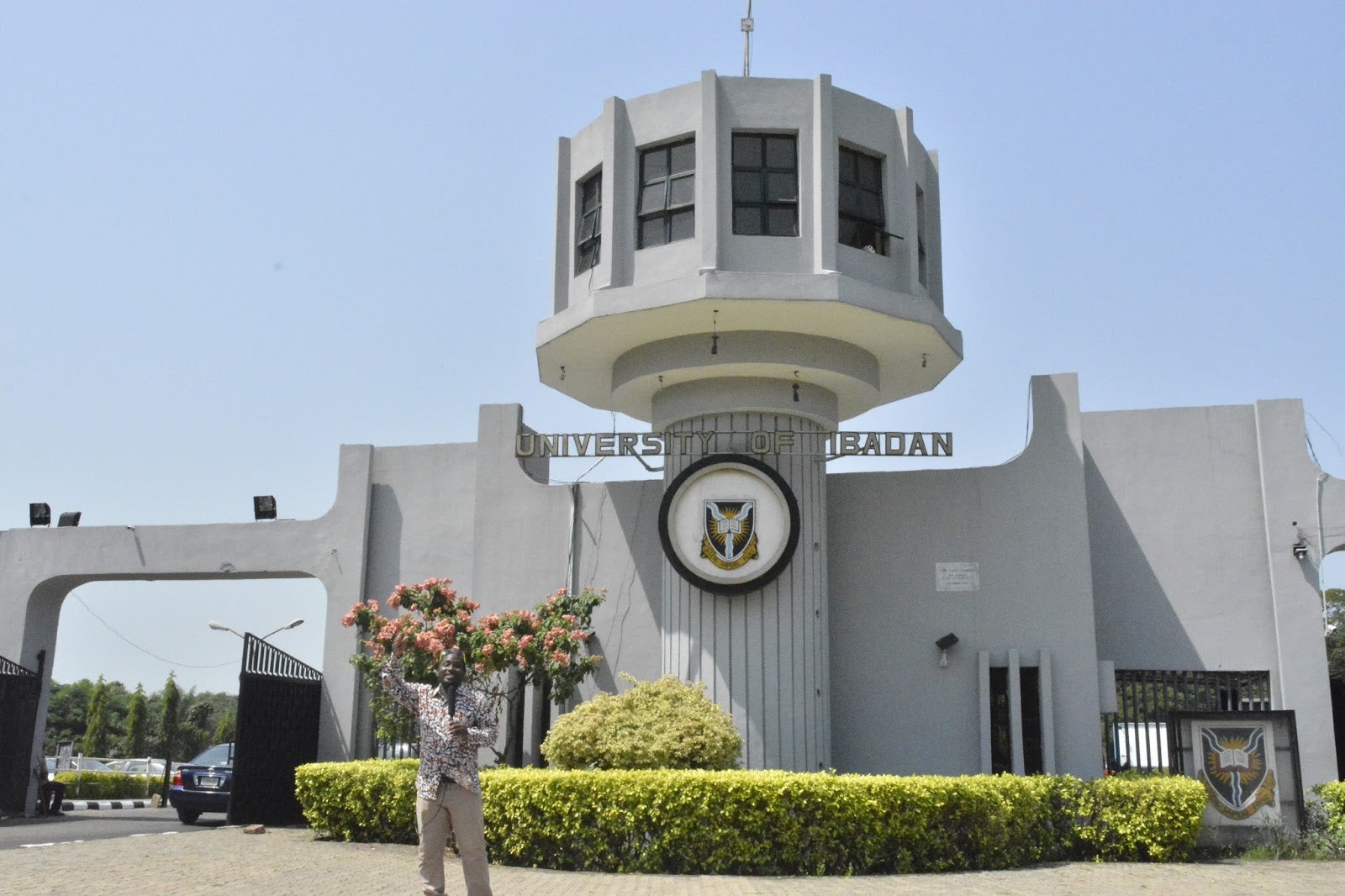Health
Ramadan: Consumption Of ORS, Other Energy Drinks Surge In Kano

-
Indiscriminate consumption dangerous – Experts
-
Nothing wrong with it – Clerics
For many Muslims around the world, Ramadan is a month of reflection, introspection and religious growth. It is also a month of challenging dietary changes as the Muslim faithful are required to eat and drink only twice a day. While many Muslims partake in the fast with healthy foods and drinks, some have decided to supplement with energy drinks and most recently, ORS.
ORS or Oral Rehydration Solutions are used to combat dehydration in people suffering from diarrhea. It contains water, electrolytes and some carbohydrates that replenish the energy in patients with diarrhea. It is usually sold over the counter and often without the requirement of a prescription, hence the easy access to the pill.
Daily Trust gathered that some young Muslims in Kano have now taken to drinking ORS at Sahur, the mealtime for fasting Muslims before the break of dawn, while some even at Iftar when it is time to break their fast.
One of the users, Mariya Sani, told Daily Trust that using ORS during Sahur and Iftar was the only way to get through the fasting.
“I am a tailor, I use energy to work and I easily get tired. This is why I take ORS for Sahur to have the energy I need to work. If I don’t take it, I become weak. I also take it during Iftar to regain my strength”, she said.
Like Mariya, Hadiza Sule also believes that taking ORS was the key to maintaining energy during Ramadan.
She told Daily Trust that she believes taking ORS was the only way to fast till the end and justified her action by saying, “I know doctors prescribe it for sick people who are weak and since fasting naturally makes us weak, I take it to regain strength.
“My 10-year-old son came back from Islamiyya School last week and told me I should buy ORS for him so that he can see through the fasting,” a father, who asked not to be named, said, adding that it is now common knowledge for his son to be demanding for it.
Muhammad Yusuf says he takes the solution because he believes that the drug has no side effects whatsoever even though he takes it without prescription. He said: “I have been taking ORS for a while now, even outside of the fasting period. But during fasting, I take it at Sahur and Iftar to keep my energy up. I have been taking it for a long time now and it doesn’t harm.”
The increase in the consumption of the drugs like other energy drinks has naturally increased its demand at pharmacies and patent medicine stores in the city as admitted by Yahaya Muhammad Sani, a pharmacist.
Sani told one of our reporters that “With the coming of Ramadan, there is a high surge in the demand for ORS/ORT. People come here to purchase at Iftar and keep it to use during Sahur.
“We do sell a carton now in a week because of the demand but before the Ramadan fast, we barely sold 10 out of the 100 sachets in a carton.”
Indiscriminate consumption dangerous – Experts
But as a pharmacist, Sani said the indiscriminate consumption of the solution could have an adverse effect on the person.
“There is a problem taking ORS indiscriminately without a doctor’s prescription. If you are aged or have any underlying health condition, you are more vulnerable to problems. People should avoid taking it and take a lot of water instead.”
He said pharmacists cannot regulate how the people access the drug because “When they come to buy, if you refuse to sell to them, they would still go elsewhere to buy, so I have to reluctantly sell to them.”
READ ALSO:
- Birthday party turns graveyard as policeman kills two + Video
- Bauchi Airport In Complete Darkness When Police Helicopter Crashed – Report
- APC Ticket: 2 Northern Govs Behind Jonathan’s Return Bid
Speaking in a similar vein, Naseeba Babale, a lab scientist said that the indiscriminate consumption of ORS might not end well for its consumers.
“ORS is given to people that have lost something we call electrolytes usually through diarrhea and sometimes vomiting.
“Although people get dehydrated during fasting, it does not lead to electrolyte loss. You see, it contains some salts, which the body of a fasting person doesn’t really need.
“People should be wary about taking it because it could lead to an overload of sodium and then hypertension might set in.”
A medical doctor, Abdullah Shittu also called on people to be wary of indiscriminate consumption of the solution. “This is more, especially with people who are already predisposed to hypertension, they should avoid taking ORS.”
He added that people should avoid using unprescribed drugs.
ORS not haram – Clerics
An Islamic cleric, who preferred not to be named, told Daily Trust that although culturally and even to an extent, morally taking energy supplements like ORS during fasting is frowned upon, spiritually, there is no teaching that prohibits taking them.
He said, “Muslims are told to eat well at Sahur and even to delay eating Sahur so that they eat enough to sustain them through the fast. As long as they don’t take the ORS during the day when the fast is going on, I don’t believe it invalidates the fast. But God knows best.”
In agreement, another cleric, Dr. Shuaibu Doury said that as long as the supplements taken to conserve energy are alcohol-free and consumed within the stipulated time, they do not invalidate the fast.
“I will personally endorse it to people whose nature of work calls for physical and even mental exertion,” he said.
But a former Chairman of Kano State Council of Ulamas, Sheikh Ibrahim Khalil warned that though it is not haram, people should not take it without a prescription by a qualified medical doctor.
“Since doctors prescribe it for patients suffering from diseases such as diarrhea and people do take it to regain their energy because of the fasting, taking ORS doesn’t invalidate fasting. If people take it due to the excessive heat or sun, if it is prescribed or recommended by a doctor to lessen the effect of fasting, then there is no problem.
“Fasting isn’t about hunger. It is about abstinence from eating and drinking. If you take it to regain energy to do your work during the day, it doesn’t affect your fasting. It is not prohibited. It doesn’t invalidate your fasting.”
Sheikh Khalil gave an instance of women being permitted “To take some drugs to pause their menstrual period to be able to fast or to be able to perform Hajj. So, there is no problem if taking ORS will give you strength to fast or to allow you to do your work”
Another cleric and university lecturer, Dr. Ibrahim Siraj said as long as it is not prohibited in Islam, you cannot stop people from using it.
“ORS on its own has no substance in the composition that is forbidden in Islam. So, it can’t be said to be prohibited. If there is something in it that is forbidden, Islamic clerics can give Fatwah against it. It is medical experts that can advise accordingly, if there is anything harmful in taking it, then Islamic clerics too would rely on the expert’s submission to give Fatwah.
“If doctors recommend it to be used, then there is no problem, it can be used since it is acceptable in Islam. But if doctors say there is a problem, then doctors’ professional advice should prevail,” he added.
DAILY TRUST
Health
Ekiti College of Nursing, parents at war over increase in hostel fee

Ekiti College of Nursing, parents at war over increase in hostel fee
The parents’ body of students of Ekiti State College of Nursing Sciences, Ado Ekiti has appealed to Governor Biodun Oyebanji, the state House of Assembly, and the commissioners for education and health to intervene in its stalled negotiation with the management of the college over the astronomical fees charged by a private estate developer, BVERS Hostel and Suites.
In the petition obtained by Sunday Vanguard, the parents stated: “We, as the parents’ body of the above College, use this medium to register our ordeal with the management of the college and a private developer over exorbitant charge of N250,000 per bed space.
“Sir, permit us to inform you that a bed space was charged at N40,000 in the year 2022 when our children were offered admission into the college, but this amount was increased to N100,000 per bed space when the students resumed. It took several negotiations before we were given a few months’ grace to pay for the additional N60,000 to make up for the increment.
“We were surprised to receive an urgent call in September this year from our children that they have been moved to a new hostel within the college and with instructions by the college management that a bed space will now cost N280, 000.
“However, the amount was merely reduced to N250, 000 per bed space after several engagements with the College Management to register our objections to the obnoxious increment. Further several appeals for reduction of the accommodation fee by the college management are unyielding and have eventually forced us to appeal to you as the father of the State to come to our aid and mediate on this issue and review as follows:
READ ALSO:
- Ilesa varsity student electrocuted while pressing phone
- Court Ruling: How Obasa played Lagos Assembly members
- Eight arrested in Maiduguri for killing, burying newborn
“The hostel, as designed, is only suitable for a student; after a careful review of the prevailing circumstances in and around Ekiti State, a charge of N250,000 per student space is outrageous and unsustainable.
“Considering the health and well-being of our children, it will be hazardous to allocate four students to a room originally designed to accommodate a student.
“That we seek your fatherly intervention to instruct the management of the college to accept our proposal of a charge of N150, 000 per bed space and allocate a maximum of two students to a room.
“We equally wish to appeal to His Excellency to intervene in the proposed increment of the college fees beyond common man. “Sir, we have no doubt in your government’s prioritization of the welfare of students and ensuring that their rights and interests are well protected at all times. We believe that you are against anything that will undermine the core principles of accessibility and affordability to education, which are crucial for factoring socio-economic growth in our state and the nation at large.”
When this correspondent sought the reaction of the Chief Medical Director of the Ekiti State University Teaching Hospital, EKSUTH, Professor Kayode Olabanji, he said he intervened when the parents brought the matter to his attention and that was why the initial fee of N280k was negotiated down to N250k and then N230,000.
“However, it was when we negotiated it down to N250k that the parents decided to take the matter to the Office of the Governor and the House of Assembly. So, since the matter is now at the higher office, and a panel has been set up, we have to wait government pronouncement on the matter,” Prof Olabanji said.
Many of the parents, who spoke to Sunday Vanguard, said they don’t mind paying the N230,000, but the rooms should be of modern standards that would cater to the number of available students.
Ekiti College of Nursing, parents at war over increase in hostel fee
Health
UI management raises alarm over female students turning egg donation into source of income

UI management raises alarm over female students turning egg donation into source of income
The University of Ibadan (UI) has raised concerns over the growing trend of female students donating eggs for In-Vitro Fertilisation (IVF), with some reportedly turning it into a regular source of income.
 The University Health Service (UHS) issued a memo, titled ‘Health Advisory on Egg Donation,’ signed by Dr. Aderonke Ajav, highlighting the issue.
The University Health Service (UHS) issued a memo, titled ‘Health Advisory on Egg Donation,’ signed by Dr. Aderonke Ajav, highlighting the issue.
University spokesperson, Joke Akinpelu, confirmed that the memo was published in the university’s bulletin.
The management has expressed alarm at the increasing number of female students involved in egg donation, urging them not to view it as a financial opportunity.
READ ALSO:
- Speed Darlington alleges use of ‘Juju’ by Portable during celebrity boxing bout
- Speed Darlington alleges use of ‘Juju’ by Portable during celebrity boxing bout
- Davido eyes Nollywood, to invest in film projects
“It has come to our attention that there is a growing trend within the university community involving the participation and/or recruitment of female students as egg donors for In-Vitro Fertilisation (IVF) by individuals, agents or agencies,” the memo read.
“While egg donation has brought hope to many families struggling with infertility, it is important to note that it should not be considered a permanent source of income or an alternative side hustle.”
The institution acknowledged that current research has yet to provide clear conclusions on who is medically fit to donate, the safe frequency of donations, and the optimal interval between them.
As a result, the memo advised students to limit donations to no more than three times a year and to select reputable clinics that follow established guidelines and prioritize the safety of donors.
UI management raises alarm over female students turning egg donation into source of income
Health
FG begins free Cesarian Sessions in over 100 hospitals (See list)

FG begins free Cesarian Sessions in over 100 hospitals (See list)
The Federal Government has begun offering free Caesarean Section (CS) procedures in more than 100 hospitals across Nigeria, according to the National Health Insurance Authority (NHIA).
NHIA Director-General, Dr. Kelechi Ohiri, announced the development in Abuja, explaining that the initiative falls under the Comprehensive Emergency Obstetric and Neonatal Care (CEmONC) Programme.
He noted that the scheme is operational across federal, state, private, and faith-based medical facilities located in all six geopolitical zones of the country.
According to Ohiri, women in need of assistance only need to provide a National Identification Number (NIN), which may be presented either before or after hospital admission.
He clarified that the determination of eligibility lies with the hospital’s social welfare department, which assesses patients’ financial situations.
“Once assessed, eligible women receive the CS at no cost and are automatically enrolled into a health insurance plan under the Basic Health Care Provision Fund (BHCPF), managed at the state level,” he disclosed.
Dr. Ohiri emphasized the collaborative nature of the effort, which involves both public and private sector healthcare providers with the goal of tackling maternal mortality.
READ ALSO:
- AfDB Adesina speaks on shocking truth that keeps Africa poor
- Kano man Shamsu Yakubu arrested for licking goat’s genitals
- CBEX: Investors hospitalised following trading platform crash
“The nationwide coverage is across key health institutions,” the NHIA boss stated.
He listed major beneficiaries in the North-West region to include Aminu Kano Teaching Hospital and Murtala Mohammed Specialist Hospital in Kano; Usmanu Danfodiyo University Teaching Hospital and Maryam Abacha Women and Children Hospital in Sokoto. Others are Ahmad Sani Yariman Bakura Specialist Hospital and several General Hospitals in Zamfara and Kebbi states.
In the North-East, the program covers Federal Teaching Hospital, Gombe; University of Maiduguri Teaching Hospital; Federal University of Health Sciences Teaching Hospital, Azare; Federal Medical Centres in Nguru and Jalingo; and Modibbo Adama University Teaching Hospital in Yola.
North-Central institutions include Federal Medical Centres in Bida and Keffi; University of Abuja Teaching Hospital in Gwagwalada; and General Hospitals in Suleja, Mokwa, and Tunga Magajiya.
For the South-West, beneficiaries include Ekiti State University Teaching Hospital, Federal Medical Centre Ido-Ekiti, State Hospital Abeokuta, State Specialist Hospital Okitipupa, and Oba Ademola Maternity Hospital in Ijemo.
In the South-South region, the list includes University of Uyo Teaching Hospital, University of Port Harcourt Teaching Hospital, Federal Medical Centre Yenagoa, University of Calabar Teaching Hospital, Irrua Specialist Teaching Hospital, and University of Benin Teaching Hospital.
He stated that the South-East had the Federal Teaching Hospital, Abakaliki, Ebonyi; David Umahi University Teaching Hospital, Uburu, Ebonyi; NOFIC Abakaliki, Ebonyi, among others.
Faith-based and private hospitals are also included in the initiative, among them St. Gerard’s Catholic Hospital in Kaduna, St. Patrick Hospital in Abakaliki, Yusuf Dantsoho Memorial Hospital, and Sir Patrick Ibrahim Yakowa Memorial Hospital in Kafanchan.
Ohiri revealed that more than 200 additional facilities are currently undergoing assessment for inclusion, which could significantly broaden the program’s reach.
“This initiative is a critical part of the government’s commitment to ending preventable maternal deaths.The free CS services are not limited to federal facilities; state-owned, private, and mission hospitals have been engaged to reach as many women as possible,” he noted.
He further explained that there is no formal enrollment process to benefit from the coverage.
“As long as a woman presents her NIN and is evaluated by the hospital’s social welfare unit as financially incapable, the surgery will be offered free of charge,” he said.
Ohiri urged the public to spread awareness about the program, particularly in underserved communities where the cost of delivery can be a major obstacle.
FG begins free Cesarian Sessions in over 100 hospitals (See list)
-

 metro3 days ago
metro3 days agoRivers: Tinubu meets with Fubara, may lift his suspension
-

 metro2 days ago
metro2 days agoI’m not in supremacy battle with Ooni, says new Alaafin
-

 Entertainment1 day ago
Entertainment1 day agoP-Square: Jude Okoye freed after two months detention
-

 metro7 hours ago
metro7 hours agoOmokri : How Tinubu’s political mastery started with Abiola, says El-Rufai, Obi’s forces can’t stop him
-

 metro3 days ago
metro3 days agoBandits attack Kwara North, kill vigilante, six others
-

 Business2 days ago
Business2 days agoNigeria’s gas production increases by 15.6% to 227,931.65 mscf
-

 metro1 day ago
metro1 day agoNiger Gov Bago makes U-turn on dreadlocks ban after backlash
-

 Politics1 day ago
Politics1 day agoLabour Party collapses into APC in Plateau













